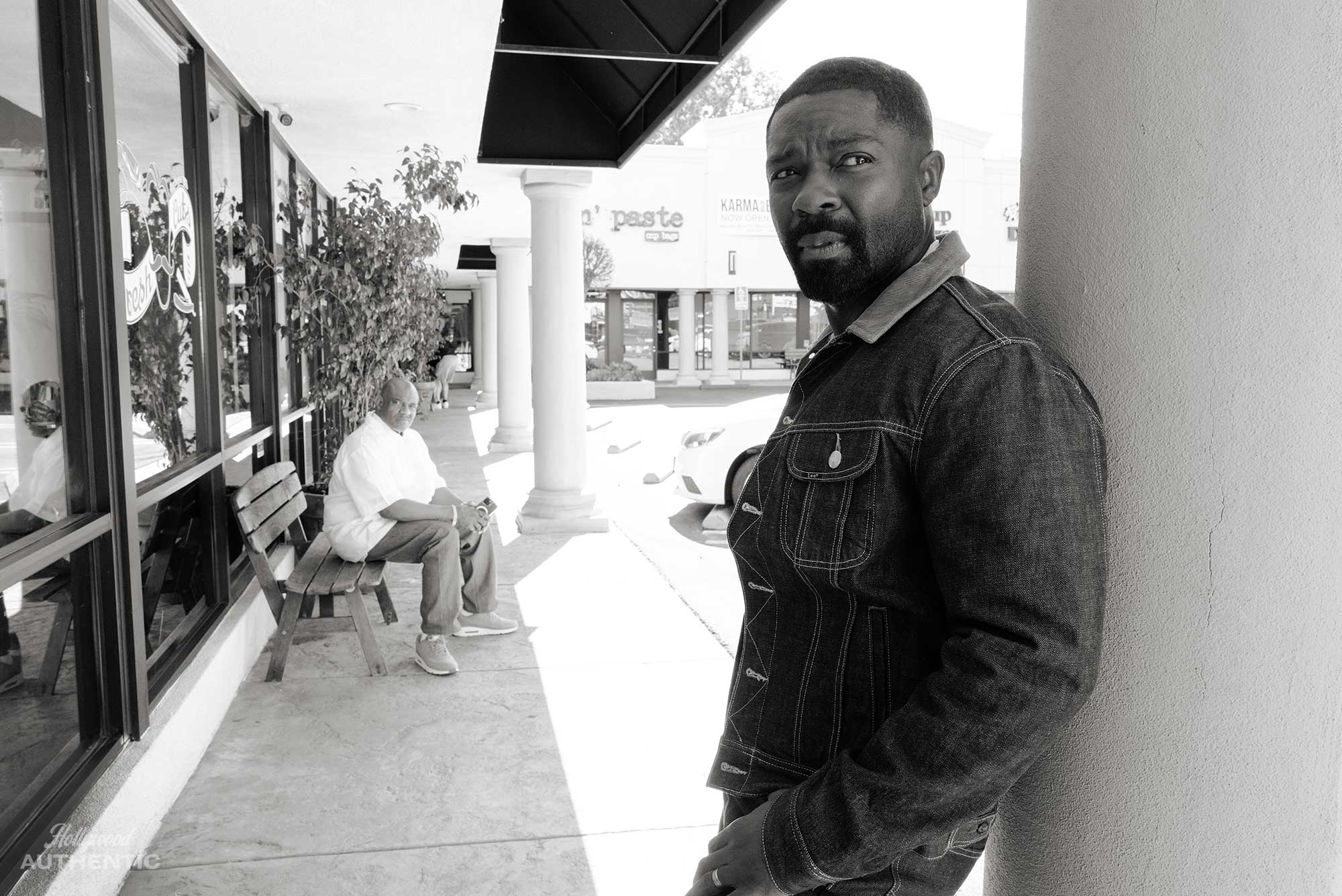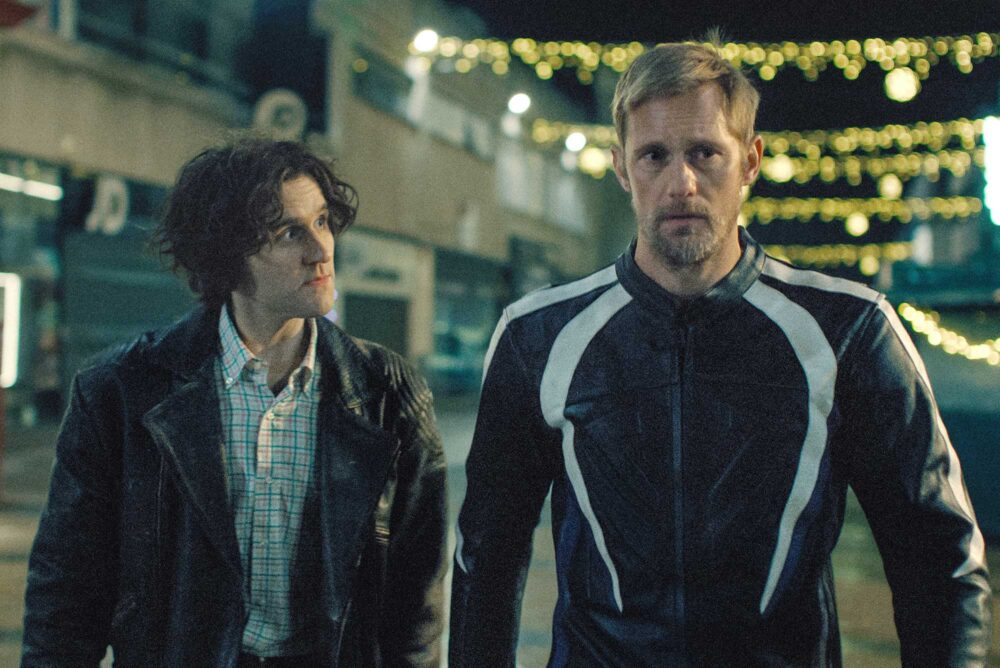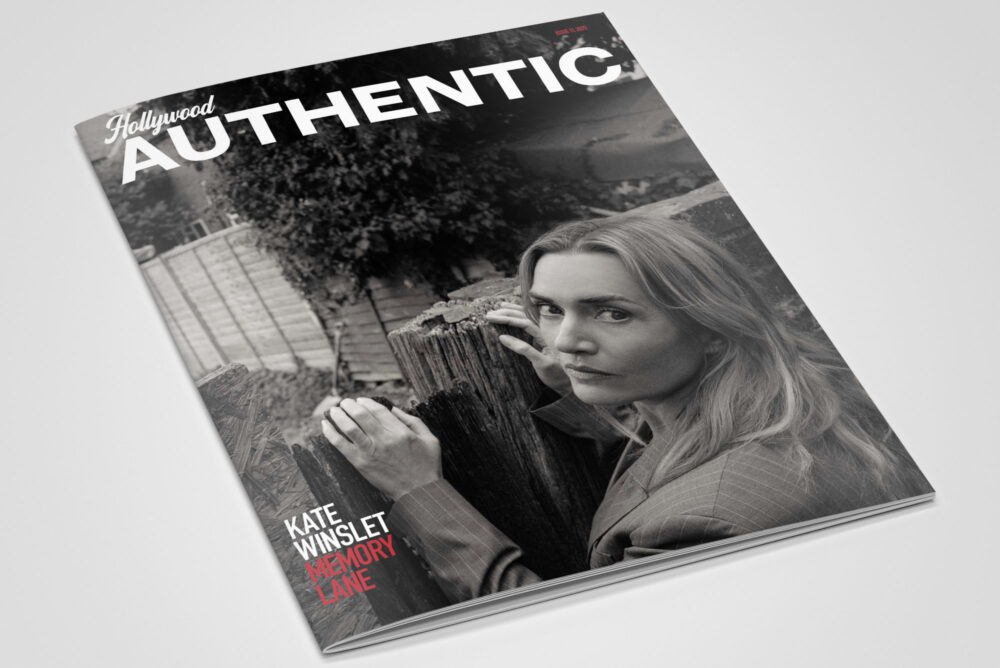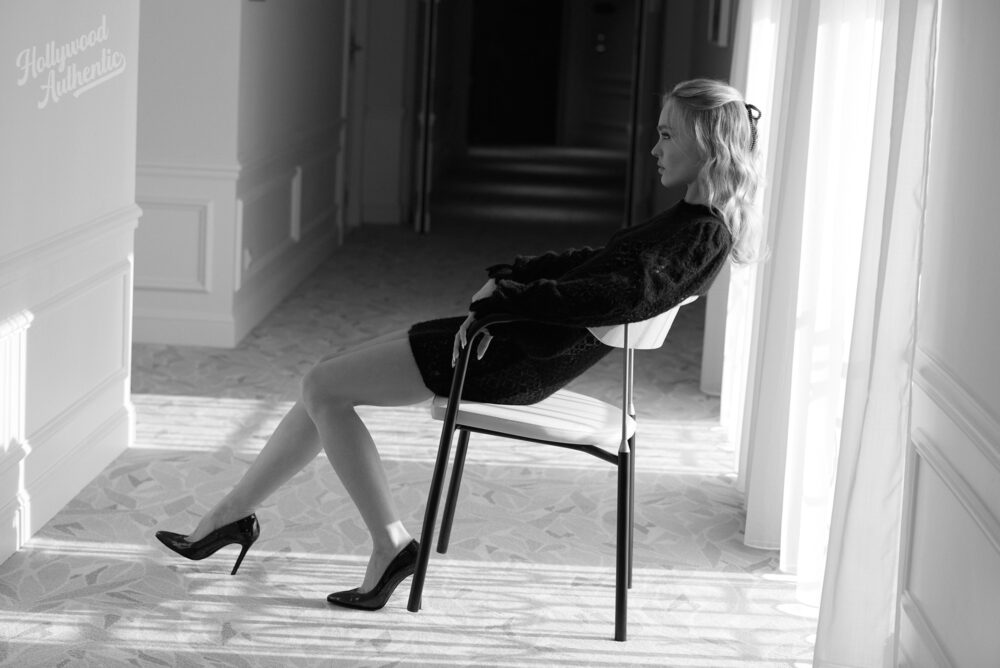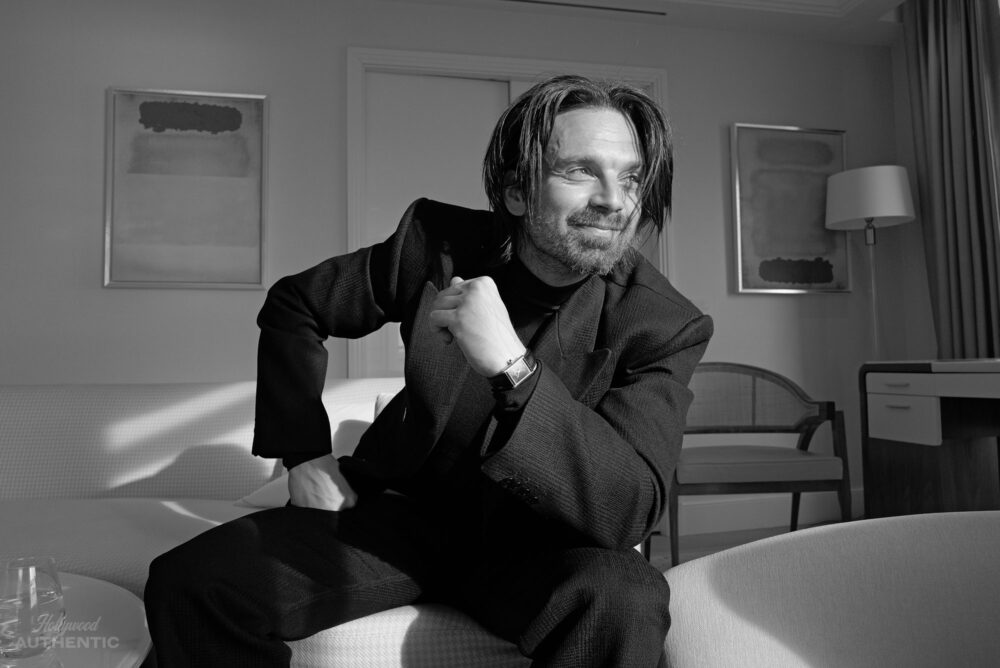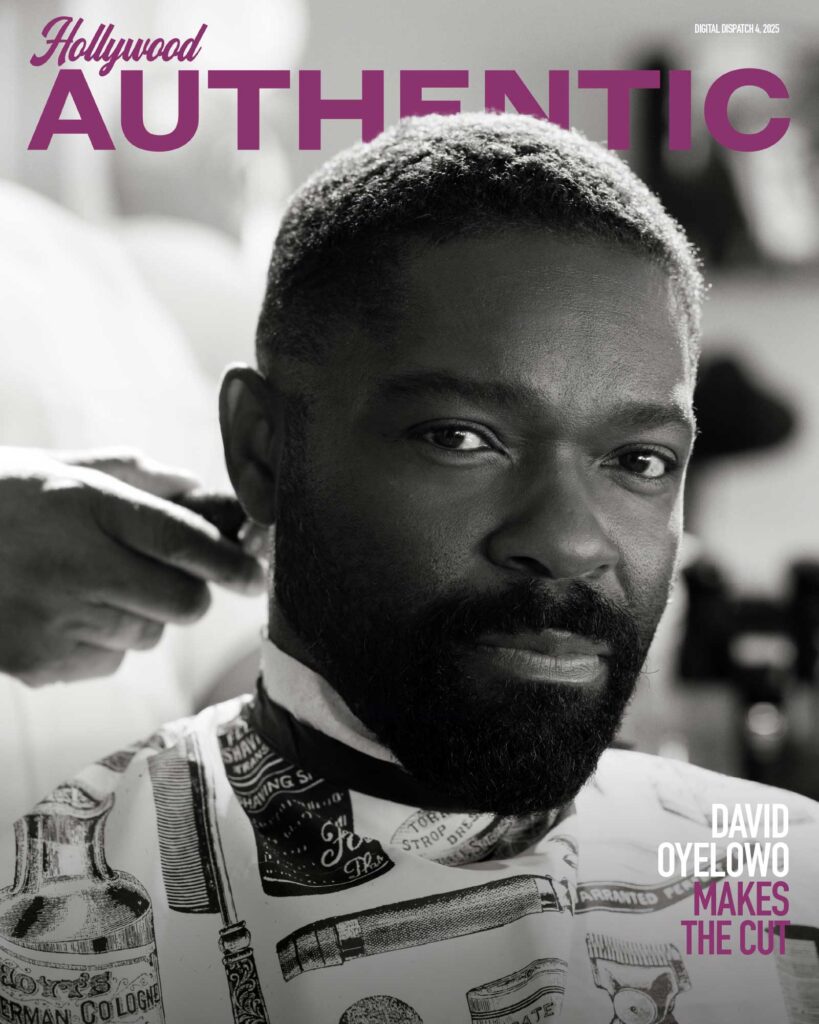
Photographs & Interview by GREG WILLIAMS
As told to JANE CROWTHER
Greg Williams joins British actor-producer-director David Oyelowo at his LA barber shop to talk creating opportunity and the pursuit of excellence.
‘Getting into character, the look of the character, the physical presence of the character, is something that I tend to focus on,’ David Oyelowo tells me when I meet him at a strip mall in Tarzana one morning in February. This unassuming location off Ventura Boulevard is a place for transformation for the multi-faceted actor who has played Martin Luther King Jr. in Selma, a pharma-villain in Rise of the Planet of the Apes and the first African-American US Marshal in Lawmen: Bass Reeves. Today, Oyelowo is getting a haircut from his trusted barber, Gene. ‘He’s very detail orientated,’ Oyelowo says as we walk inside. ‘He gets me looking right.’
Sandwiched between a pilates studio and a dog groomers, the barber shop is a cosy space that Oyelowo has been coming to for a long time – Gene has been cutting his hair for 15 years. It’s one of his neighborhood spots in LA, now home since moving here in 2007 and becoming a US citizen in 2016. The valley is also the location for the filming of Government Cheese, his new ’60s-set dramedy show currently streaming on Apple TV+ in which he plays an ex-con who returns home to his family and causes chaos. He’s about to start a promotional campaign for the project and wants a sharp cut.
As Gene fires up the clippers, I ask Oyelowo about his relationship with excellence, given his prolific work output and his ability to plate-spin being an actor, producer and director. ‘A principle I live by is: the difference between good and great is hard work. I think that’s what excellence looks like. I’ve had to learn that there’s a difference between perfection and excellence. Perfection is debilitating. It’s unattainable. I think, actually, it ultimately leads to depression. The pursuit of excellence is something that is attainable because it’s basically doing your best, knowing you’ve done your best, and making peace with the fact that that’s as much as you can do. Failure doesn’t mean that you weren’t excellent. I used to actually take pride in being a perfectionist, especially with having kids, you’re trying to model behaviour that they will emulate. I recognise that them watching their dad pursue perfectionism is not a good example. But excellence absolutely is. That is what I now aspire to more than perfection.’
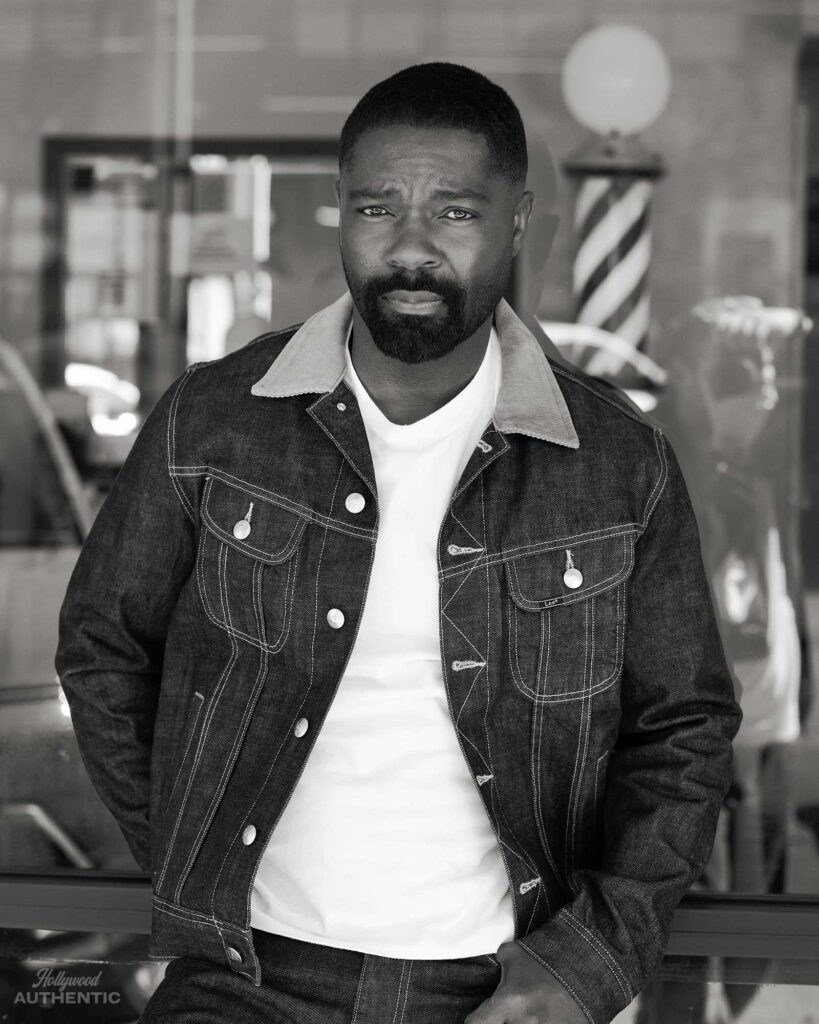
If you find good people, hold on to them for dear life
Oyelowo has certainly shown excellence in his work to date since learning his craft at the National Youth Theatre and LAMDA before making his name in BBC spy show, Spooks, in 2002. Since then he has impressed in a wide range of projects (and accents) including Lincoln, Jack Reacher, Interstellar, Silo, The Book of Clarence and most recently as Shakespeare’s Coriolanus in London’s West End. He’s been working professionally since 1995 and subscribes to the building up of a career with varied roles and experiences. ‘Young actors, or people who are aspiring to be actors, a lot of the time what they aspire to is instantaneous success, or having quite a high level of notoriety quickly. I actually think that’s a trap. What you actually want is a slow-burn career. You don’t want to have the highs be too high, and the lows be too low. But consistency is how you end up with a body of work that is admirable in its totality, as opposed to these moments that, in isolation, warrant attention, but then there’s this dearth in between. And the only way you get that is perseverance.’
As Gene carefully grades his hair, Oyelowo smiles in the mirror. ‘This is why I like having my haircut done by Gene. Every time I sit in this chair, I can tell that he is looking to do his best work. I genuinely am drawn to that. It’s one of the things that I enjoy as a producer, and whenever I’ve directed as well. It’s being around people who are brilliant at what they do. Actually, I got a great piece of advice. The feature film that I directed a little while ago, The Water Man, I called some directors who I really admire. One of them said something that really stood me in good stead, which is that your job is to hire the best people possible, communicate your vision very clearly, and then allow them to take flight. So excellent people – people who pursue greatness – is the way for you to look great as a director. And certainly I know from when I work with great directors, that’s very clearly the distinguishing factor. They surround themselves with people who are really excellent, and they model it in what they do as well.’
I ask him about working with an actor often cited for excellence, Daniel Day Lewis, who played President Lincoln to Oyelowo’s union soldier in the Spielberg film. ‘I personally think he’s the greatest living actor,’ he responds without hesitation. ‘The definition of not only an actor but a great actor is someone who is chameleonic; someone who genuinely transforms role to role; someone who clearly has studied humanity to a degree whereby they’re able to approach humanity from so many different angles and still be convincing in the roles they play. That, to me, is a master of the craft, and I can think of very few actors who take as many risks as he does, who pay a price as high as he does, and who are as successful in terms of the execution of their roles as he is. He, for me, is the gold standard. And then there’s working with Forest Whitaker on The Last King of Scotland, or a director like Christopher Nolan or Steven Spielberg or Anthony Minghella or Ava DuVernay, where you go, ‘Oh, there are levels to this thing.’ Tom Cruise is the same. These artists who you just go, ‘Oh, that’s why you’ve been doing it this long. That’s why there’s a connection between you and the audience that is not what you get everywhere.’ That gave me the blueprint, and maybe even the playbook for some of the more intense roles I’ve been afforded the opportunity to go on to play.’
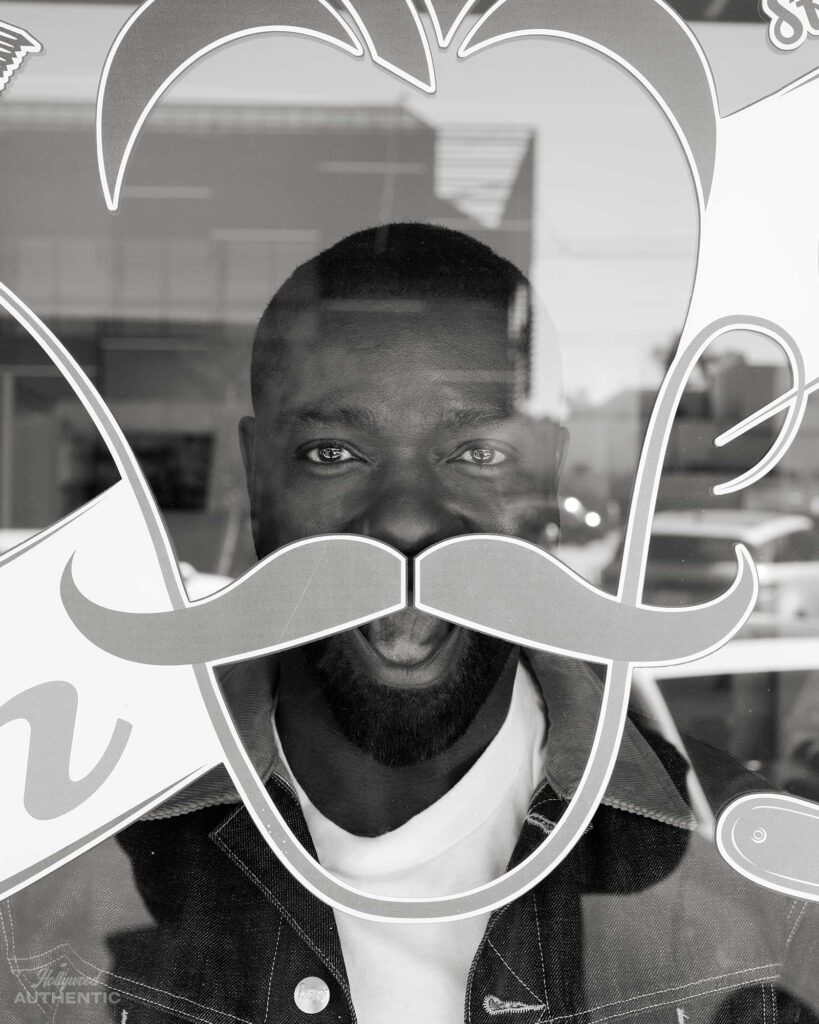
Having played two historical figures in Martin Luther King Jr. and Bass Reeves, Oyelowo was hoping to add another to his resume with a long-gestating biopic of boxer Sugar Ray Robinson. ‘I think I have to make peace with the fact that I’ve probably aged out of playing Sugar Ray Robinson,’ he laughs. ‘But I still want to tell that story, and I think I’m going to still do it, probably as a producer, maybe as a director. Sugar Ray Robinson in his prime may be something that I let someone else do. But, honestly, that is something that I increasingly have enjoyed doing, keeping open the doors that have either been opened for me, or I’ve managed to get open, and making sure that others are allowed through. A big goal of mine is to leave the storytelling landscape different than I found it. A film about Dr King where he’s central had not been made before. A show that had Bass Reeves central had not been made before. Sugar Ray Robinson was the inspiration for Muhammad Ali. We should know more about him. That’s why I’m passionate about that story. And finding different ways to get these stories out there is the thing I’m ultimately very dedicated to.’
Oyelowo’s production company, Yoruba Saxon, looks for projects that shine a light on underrepresented stories. ‘We have a motto to normalise the marginalised. Our goal of normalising that is just an acknowledgment that filmmaking and television changes culture. It’s one of the most potent means of both advancing and regressing culture. And so I definitely want to be on the good side of that fence. Telling stories, for me, is a means of entertainment and education, but it’s also a political act for me.’
His move to LA from the UK was also something of a political act. Feeling limited by the opportunities available to him at home despite success with the RSC and Spooks, he turned his eyes towards America – moving himself and his wife to Hollywood. ‘It was patently obvious that the UK was not going to provide the opportunities I aspired to. Some of that is to do with race. Some of that is just to do with the size of the industry. But the two things compound each other. If it’s a smaller industry, and Black and brown people are not prioritised, then it’s an even smaller postage stamp to land on.’ Has that changed, I wonder? ‘Where I think it hasn’t changed much is I see that for Black actors in the UK, a path to a global career is still through playing roles that are not British. You still have to play American roles, or roles that are not tied to our culture in the UK, which I think is deeply unfortunate. John Boyega has to do Star Wars. Chiwetel Ejiofor has to do 12 Years a Slave. Idris Elba has to do The Wire. Naomie Harris has to do Moonlight. Thandiwe Newton has to do Mission: Impossible. Daniel Kaluuya has to do Get Out… There isn’t the same trajectory as if they’re white, British actors. It’s different.’
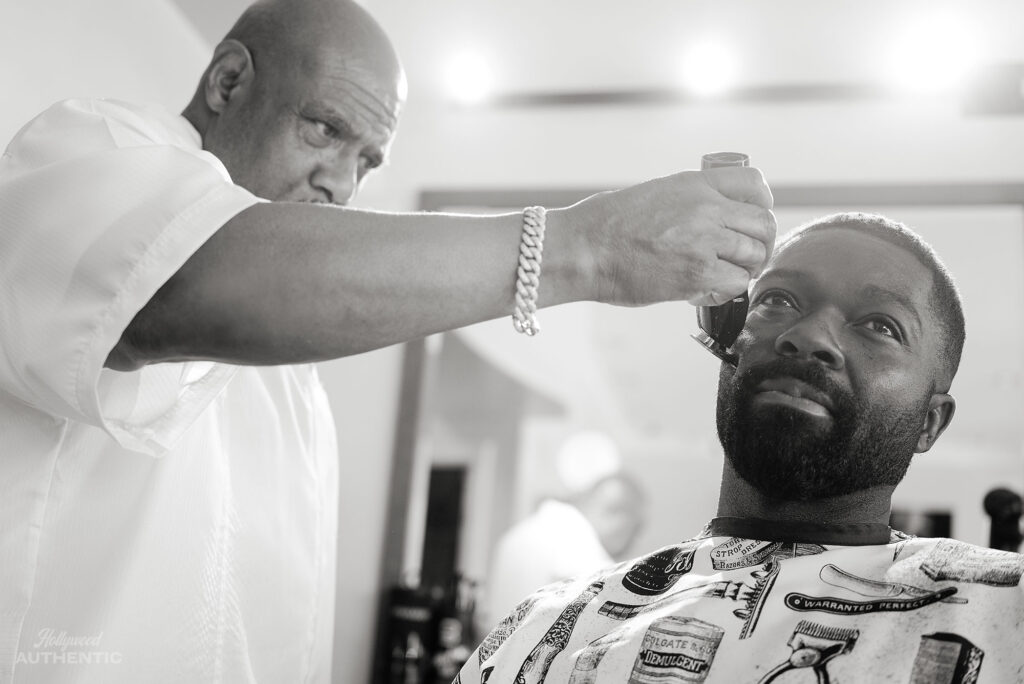
He recalls his methodology for trying to break out of pigeonholing. ‘I had to say to the people who were considering taking me on as an agent, “Put me up for the roles that are either non-race-specific or are specifically white, because that’s where there’s more dimension. And then I’ll bring the specificity of my Blackness to it.” When it’s written for a Black character, the aperture just goes so small, and it does fall into caricature and stereotype – and a lot of the stereotypes that I didn’t want to be perpetuating. Also, it made characters such that a global audience couldn’t relate to them. They felt so niche. They felt so boxed. A lot of my career has been spent exhaustingly having to educate people – my history, my culture, who I am, my journey, is not their bias or their perspective. Things are getting better but ultimately until women, until Black and brown people own distribution mechanisms, or have the resources to be able to tell their own stories outside of the studio system, we’re going to be in this cycle.’
Oyelowo leans forward in his chair and inspects Gene’s work before asking for minute calibrations in the weight of his goatee. I ask him about growing up in the UK as the kid of immigrants. His Nigerian parents from two different tribes ‘essentially eloped’ to Britain to be together, having him in Oxford before the family moved to South London and then back to Lagos. ‘You want to talk about a culture shock? Not only was it just different culturally, but it was very different familially. We didn’t really have any family in the UK, and suddenly we lived on the Oyelowo compound on Oyelowo Street in Lagos.’ At 13, the Oyelowos returned to London, to Islington, where the teenager caught the acting bug. Now he lives in Los Angeles with his family (a 13-year-old daughter and 17-year-old son; his two older sons, aged 20 and 23, have since flown the nest), three dogs and two parrots. At 48 he considers himself in the sweet spot for amassed experience and nous. ‘One of the greatest things about getting older and more experienced is trusting your gut. I think that it should be earned over time. It’s not something where you’re coming in as a 19-year-old and just throwing your weight around. I’ve seen that, and it’s not pretty. But an opinion based on knowing to trust your gut, combined with experience and with humility, I think is where you’re really starting to make a dent – a good one. That’s something that is increasing for me. And it’s amazing how much more you can achieve with genuine “sacrificial love”, where you’re putting other people before yourself, and therefore creating a culture with everyone looking after each other. On a set in particular – that’s one of the things I love about being a producer or a director. It’s having the opportunity to help establish that culture. If you’re not in a leadership position, it’s much harder to help engender that environment. The abuse of power is all about insecurity. I don’t like working with those guys or girls. That’s a luxury I now have. Not everyone has that luxury. But, boy, it’s one I take, because it’s so debilitating working with people who are power-hungry, who are not truly collaborative, who are toxic, and who just seem to thrive on making other people’s lives difficult. It’s just not worth it.’
Gene is done – it’s a fresh cut – and we return to the theme of excellence. Oyelowo thinks back to seeing the way Steven Spielberg surrounded himself with the highest level of craftsmanship on Lincoln. ‘If you find good people, hold on to them for dear life. With Spielberg – the director of photography, production designer, costumes – so many of the crew have done multiple films with him. And it’s a great way to just weed out the arseholes, and just have that shorthand with people.’ He turns to his groomer Vonda sitting nearby and asks how long they’ve worked together. The answer is 15 years. He asks his PA, Darnell, the same question. It’s three. Oyelowo throws up his hands in a ‘see?’ fashion and laughs. ‘I’ve told Darnell very clearly that I need at least seven years’ notice if she’s going to quit!’ He stands and brushes his hair off. ‘For me, that’s how you have not only a good life but a good working life…’
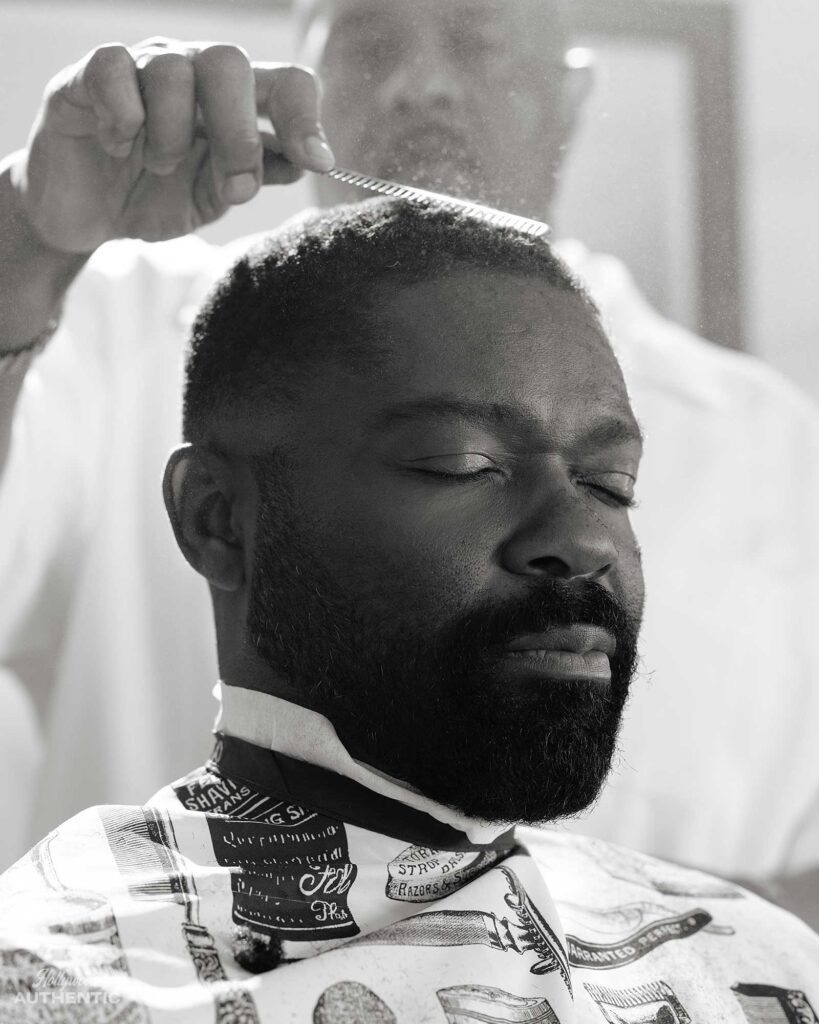
Government Cheese is streaming now on Apple TV+
Hair: Gene Miller, Grooming: Vonda Morris, Styling: Mark Holmes


